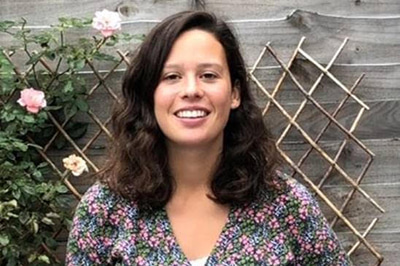- OT
- Life in practice
- Career development
- “It was so nice to chat to other academics from across the UK”
A to optometry
“It was so nice to chat to other academics from across the UK”
Charis Hedges, pre-registration optometrist and Aston University graduate, on winning CooperVision’s FORCE UK competition alongside her colleague

26 October 2021
When did you first become aware of the profession? What were the main reasons you wanted to become an optometrist?
Charis Hedges, pre-registration optometrist and graduate of Aston University (CH): When I was considering my future career options, I knew I wanted to do something where I could work with people and use my enjoyment of science. For work experience I visited Warwick Hospital. I was fortunate to see many of the different clinics the eye hospital has on a daily basis. What stood out to me was how varied the job is and the range of different people you see every day. For instance, from seeing a young child for a cycloplegic refraction due to an accommodative esotropia, to a patient requiring a low vision aid, or from a patient with a prosthetic eye, to a keratoconus patient who has just had a corneal graft.How did it feel to win CooperVision’s FORCE UK competition? Could you tell us what your presentation was on?
CH: Ishvinder and I were truly thrilled when they announced our project as the winner. We believed all the talks were so informative and I learnt a lot by taking part. It was so nice to chat to other academics from across the UK and to have an insight into what research is going on at the moment and the possibilities for further research.
Our presentation was looking into whether blinking exercises could help to relieve dry eye disease symptomology. There are apps and blinking diagrams available on the internet but little scientific evidence behind the advice. Participants used the Blinkful App developed at Aston University to help re-establish a complete blink. It had reminders to help patients to complete their exercises daily with certain parameters, such as a squeeze step. This year, due to COVID-19, our main aim was to narrow down the specific parameters to find the ‘ideal blink exercise’ which can then be used next year at Aston University for a further study when participants can be seen in person.

What placements have you carried out, and what have you learned from them?
CH: I have been fortunate to have had placements at Warwick and Coventry Hospital. I have also volunteered at a low vision centre local to where I live. From all these experiences, I have learnt the importance of clear communication, the daily struggle of living with a visual impairment, and the important role optometrists have. It was also great to see how friendly everyone was and how willing they were to offer advice and pass on their own knowledge and experience.What are your career goals and what’s next for you?
CH: I’m really excited to see what the future holds. I remember a lecturer saying that ‘if you are bored in five years’ time email me,’ as there are so many different things a career in optometry can lead to. I definitely want to do further training, but whether this is in binocular vision, glaucoma, or a PhD, I do not know at this moment.What are your expectations of the pre-reg year and how did you prepare?
CH: I know this year is going to be a hard year, but I am excited to put what I have been learning for the last three years into practice. I have been reviewing lecture content and looking at the required competencies, but also trying to have a break before the busy year begins.How did the COVID-19 outbreak affect your course and how did you adapt?
CH: As with everyone, COVID-19 definitely affected university life and our studies. The optometry department was very efficient in changing academic plans and keeping us in the loop. All our lectures went online, and we had live seminars daily. I tried to keep to a schedule so I didn’t get behind with recorded lectures and I made sure to turn up to the live seminars so I could ask the lecturers questions and also work though case scenarios with colleagues.We only had one day a week of practicals with restricted testing time, in keeping with the Government guidelines. I therefore made sure I had a patient for each session so I could use the time I had effectively. One benefit of reduced testing time was that I had to think about what tests I was going to conduct and why they were needed for that specific patient, which is true of everyday clinics.
What have been some of the concerns students have had during this time? Do you have any tips to help students in maintaining wellbeing?
CH: It is so important to make an effort to go for at least a walk every day, to get some exercise and fresh air. My flatmates and I would go out together each day to have a break from staring at a screen and sitting in one room. This is physically and mentally so important. Make the most of chatting to your colleagues in practicals and learn what you can from one another.One of the main concerns is not having enough practical experience. However, I believe after speaking to my pre-registration supervisor, they are ready to help us get up to the standard required and we will all get enough exposure during pre-reg.


Comments (0)
You must be logged in to join the discussion. Log in